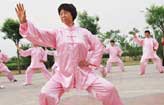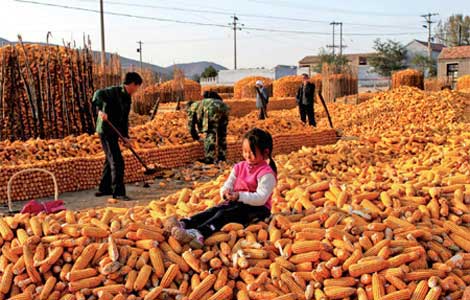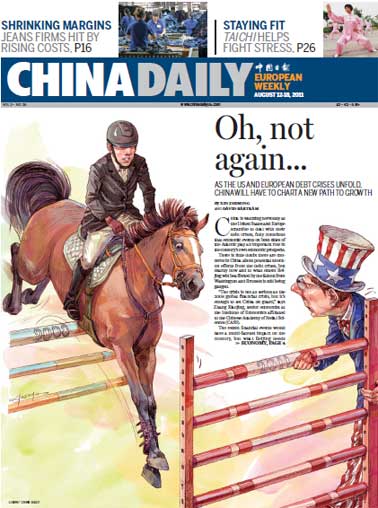Foreign and Military Affairs
Rising enmity haunts China-Japan relations
Updated: 2011-08-12 07:10
By Li Xiaokun (China Daily)
'Friendship poll' shows changing attitudes among Chinese, Japanese
BEIJING - There has been a sharp drop in the number of people in China and Japan harboring feelings of friendship toward the other country following a year of often turbulent relations, according to a poll conducted simultaneously in both countries.
The findings of the survey, sponsored by China Daily and the Japanese non-profit think tank Genron NPO, were released on Thursday and suggest that the number of Chinese people who like Japan dropped from 38.3 percent in 2010 to 28.6 percent this year.
The drop has reversed a six-year trend characterized by increasingly favorable opinions among Chinese people toward Japan. In 2006, when the survey was launched, just 11.6 percent of respondents had a favorable opinion of Japan but this figure had risen uninterruptedly up to 2010.
 |
|
Japanese children leave their palm prints on the wall at Haikou, Hainan province, on Aug 2. Invited by Premier Wen Jiabao, 100 Japanese children from areas hit by the March 11 earthquake visited Hainan in southern China for a week of therapeutic treatment. [Yin Enbiao / For China Daily] |
The poll, however, revealed a far less severe decline in favorable attitudes toward Japan among Chinese college students and young teachers in universities, with the rate dropping slightly from 45.2 percent to 43.1 percent.
Wu Yin, vice-president of Horizon Research Consultancy Group, which implemented the poll, attributed these findings to the fact that well-educated Chinese people are more likely to consider the full spectrum of China-Japan relations rather than be swayed by individual incidents.
"So the evaluation of Chinese students and teachers of Japan did not change much."
But in Japan the number of so-called elites who like China dropped 10.8 percentage points to 40.6 percent this year, while the number of ordinary people with favorable opinions dropped 6.5 percentage points to 20.8 percent.
The poll, carried out at the same time in the two countries, was conducted from late June until early July. It has a margin of error of 1.45 percent.
Among the Chinese people polled were 1,540 citizens in Beijing, Shanghai, Chengdu, Shenyang and Xi'an, as well as 1,000 university students, studying for either a master's or a doctor's degree, and young teachers at five top Beijing universities.
In Japan 1,000 adults and 500 "intellectuals" with experience of China or Chinese people were interviewed. Seventy percent of the "intellectuals" had a bachelor's degree while 22 percent held a master's.
The reason cited most among Chinese people for their enmity toward Japan was its aggression in China before and during World War II (74.2 percent). Japan's failure to fully atone for its aggression was cited most among students and teachers (86.1 percent).
It was not just turbulent relations that helped form opinions, events in Japan also played a part.
A sizeable proportion of Chinese people, 40.9 percent, and 27.2 percent of "intellectuals" said Tokyo's mishandling of the Fukushima nuclear plant crisis after the March 11 earthquake and ensuing tsunami contributed to unfavorable feelings toward Japan.
The result is in line with views among Japanese people of their government's performance in the nuclear crisis and quake aftermath, with 81.7 percent of ordinary people and 92.8 percent of the so-called elites critical of their government's response.
But Chinese people were impressed by the courageous and stoic attitude of Japanese people in maintaining social order following the March quake.
This factor contributed to 49.1 percent of Chinese citizens and 29.5 percent of "intellectuals" having favorable feelings toward Japan.
Sun Shangwu, assistant editor-in-chief of China Daily, presided over the news conference issuing the survey results and said the drop in favorable opinions by Chinese people toward Japan is due to Tokyo's undue handling of the vessel collision and nuclear crisis.
"Japanese people's performance in the earthquake aftermath won scores for their country, but did not stop the tendency," he said.
E-paper

Going with the flow
White-collar workers find a traditional exercise helps them with the frustrations of city life
The light touch
Long way to go
Outdoor success
Specials

Star journalist leaves legacy
Li Xing, China Daily's assistant editor-in-chief and veteran columnist, died of a cerebral hemorrhage on Aug 7 in Washington DC, US.

Sowing the seeds of doubt
The presence in China of multinationals such as Monsanto and Pioneer is sparking controversy

Lifting the veil
Beijing's Palace Museum, also known as the Forbidden City, is steeped in history, dreams and tears, which are perfectly reflected in design.
